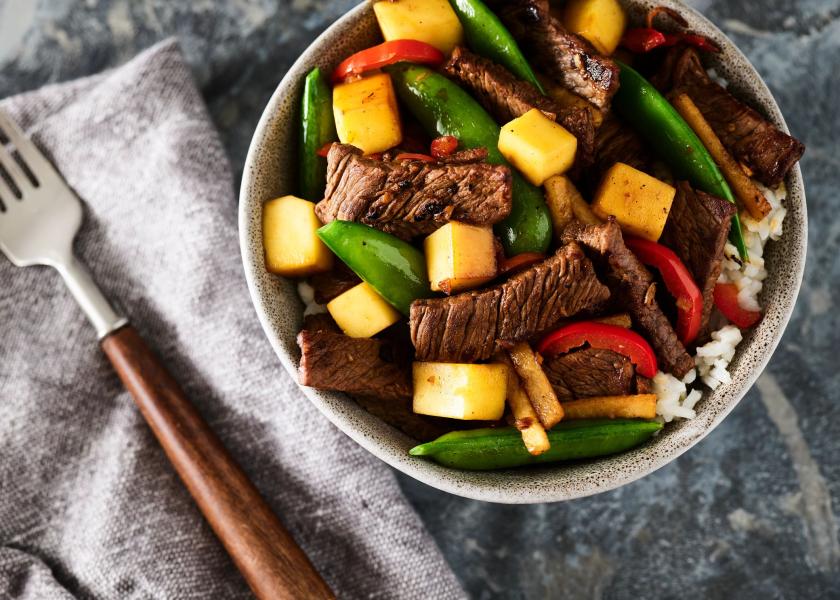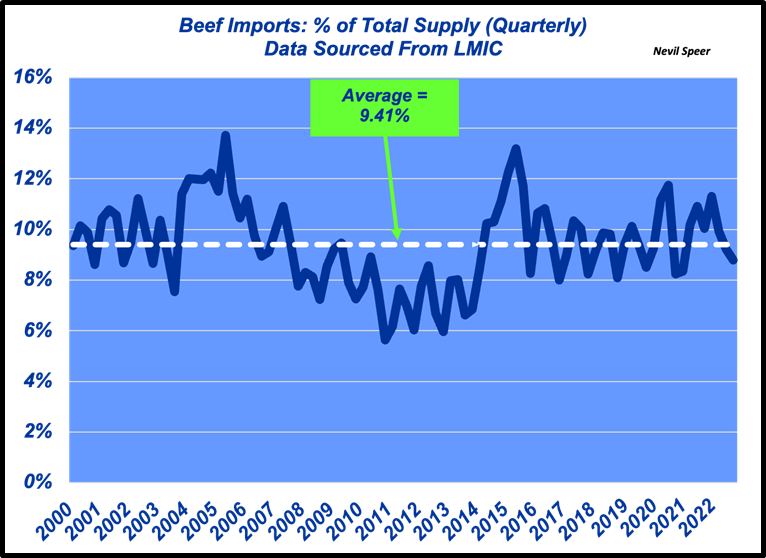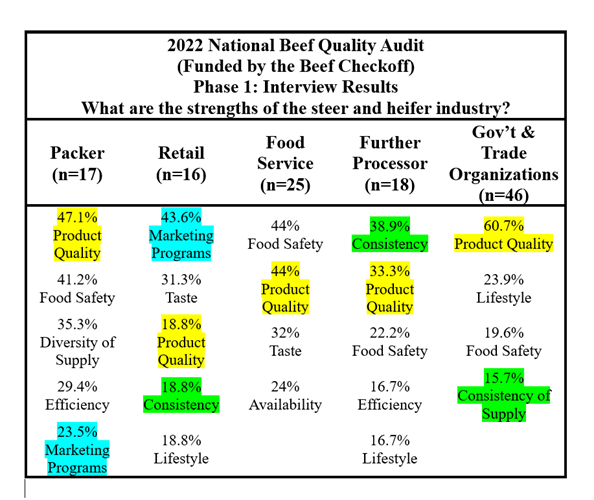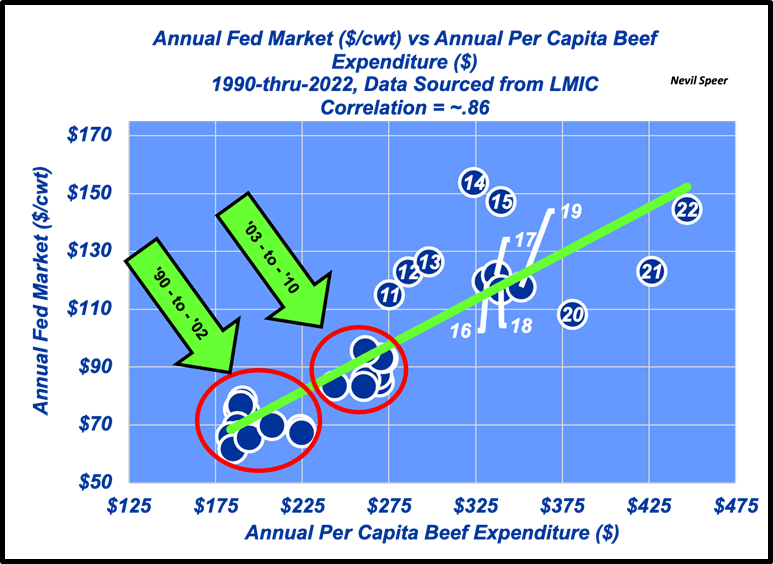Speer: Producer Investment Deserves Straight Talk, Not Misleading Improversation

Michael Scott: “Sometimes I’ll start a sentence, and I don’t even know where it’s going.” It’s one of Michael Scott’s best lines from The Office. It’s also the only plausible explanation for the blunders in RCALF’s meandering press release: Beef Checkoff Harms Producers. Let’s dive in.
#1 Imports: The discussion contends “…if the checkoff increases the sale of beef sourced from foreign countries, or if it pulls more foreign beef into the U.S. market, then the checkoff is actually harming domestic producers.” That’s followed by asserting the Checkoff “simply tells consumers to eat more beef, and they do, and that helps explain why imports have been increasing so dramatically.” Several items are important.
First, the claim “imports have been increasing” isn’t accurate. Imports ebb and flow, depending on both domestic production and available supplies of lean trimmings. But the long-run contribution to supply remains remarkably consistent. (see graph below)

Second, what about the consumption reference? RCALF asserts beef promotion “[telling] consumers to eat more beef” is effective: “and they do.” But that contradicts their previous claims Checkoff promotion has failed indicated by declining beef consumption. (see The OFF Boondoggle) That’s talking out of both sides of your mouth. Which story does the ranch group stand by?
Commodization: RCALF further contends Checkoff dollars are commoditizing the beef industry: “Our lawsuit’s study shows that when beef is relegated to a commodity as it is under current beef checkoff ads, consumers simply look for the lowest cost [i.e. imported] beef because they believe it’s all the same, meaning it’s interchangeable.”
Consumers think beef is “all the same”? NOTHING could be further from the truth. For instance, that assertion dodges the ever-growing number of branded programs in the marketplace (see Comparison of Certified Beef Programs). To that end, one of the key conclusions of the 2022 National Beef Quality Audit (funded by the Checkoff) highlighted, “Branded beef programs continue to increase in popularity.” (see table below)

Moreover, consumers vote with their dollars. Case in point, last year, I highlighted the industry’s growing differentiation – emphasizing the shift in consumer spending (see One Good Thing Leads to Another):
Prime has seemingly become a category unto itself. It’s consistently grabbing a bigger portion of market share…Prime sales have grown dramatically during the past decade; total dollars generated from the category are up 322% - equivalent to an annualized growth rate of nearly 17%!! Simultaneously, dollar totals for Choice have grown just 6.8% annually while Select dollars have turned negative.
And let’s not forget last year’s consumer research from Midan Marketing: 62% of Americans signify their preference to now spend more money to purchase premium beef. (see Marbling Is The Anchor)
#3 Defeatism: Last comes this: “So contrary to OFF Act opponents who say the beef checkoff program is lifting all boats, it’s not doing that at all. Instead, it’s providing undeserved benefits to the cheapest boat [i.e. imports] while depriving producers of domestic beef from receiving the higher prices….” That’s wrong, too.
Consumer spending continues to grow (see Build It And They Will Come). That translates to a stronger fed market. (see graph below) Simultaneously, marketplace innovation has provided distinctive opportunities for producers (see Real Money For Real Value).

Meanwhile, producers sure aren’t signaling defeatism. To the contrary, Drover’s recent State of the Industry survey “Reveals Optimism and Resilience”.
Irony: As a whole, the rhetoric is difficult to reconcile on several policy fronts.
One, the baseless accusation about beef being commoditized. Meanwhile, RCALF ardently supports cash market mandates – effectively commoditizing the fed cattle supply. Fresh research from Kansas State details such cash mandates are ill-advised: “Overall cattle and beef quality has seen dramatic improvement with increased use of AMAs by incentivizing high-quality products”.
Second, just a week after this press release, R-CALF argued “…the U.S. sheep industry must be given some space [i.e. trade protection] to rebuild domestic sheep production.” But there’s no recognition of why that might be necessary. Perhaps it’s partially due to the fact the sheep industry was slow to adopt its own Checkoff program?
Improversation: Michael Scott follows, “I don’t even know where it’s going,” with, “Like an improv conversation. An improversation.”
The Checkoff has paid huge dividends. And given that producers fund the program, there’s an obligation to portray the business factually. Their investment deserves straight talk - not misleading improversation.







